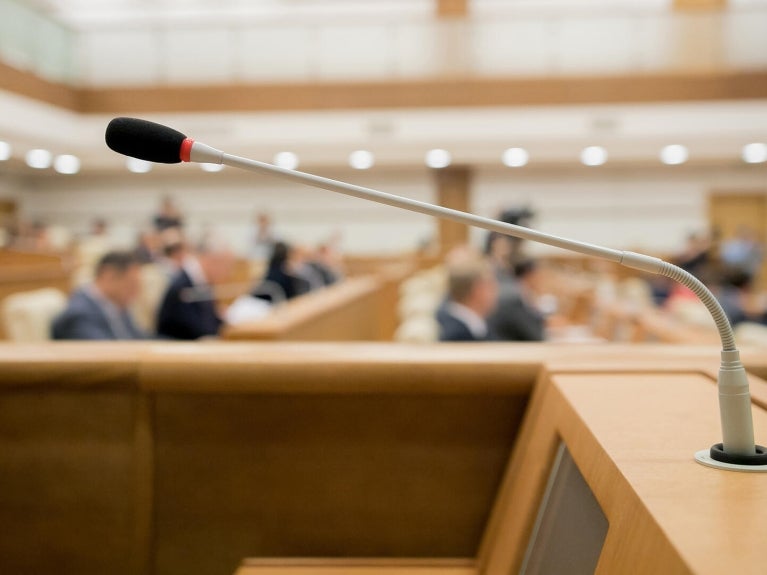General Counsel's Secret Recordings Ruled Admissible Against CEO

Last week, a judge in the U.S. District Court in Camden, New Jersey ruled that prosecutors can use secretly recorded conversations between Joseph Sigelman, the former chief executive officer of PetroTiger, and the company's former general counsel, Gregory Weisman, in Sigelman's upcoming trial.
Judge Joseph E. Irenas explained that the mere existence of an attorney-client relationship is not sufficient to make conversations privileged. Rather, attorney-client conversations are protected only if the client is seeking, or the attorney is providing, legal advice. In denying Sigelman's motion to suppress the video recording, Judge Irenas noted that there was no indication that Sigelman was seeking legal advice from Weisman or that Weisman was providing legal advice to Sigelman. Sigelman, along with his former co-CEO, Knut Hammarskjold, were charged by sealed complaints, filed on November 8, 2013, with conspiracy to commit wire fraud, conspiracy to violate the Foreign Corrupt Practices Act (FCPA), conspiracy to launder money and substantive violations of the FCPA. PetroTiger's former general counsel, Gregory Weisman, pleaded guilty to a criminal information charging one count of conspiracy to violate the FCPA and one count of wire fraud. The charges and Weisman's guilty plea were unsealed on January 6, 2014. Hammarskjold pleaded guilty to the same charges as Weisman on February 18, 2014. Sigelman remains accused of paying bribes totaling about $334,000 to David Orlando Duran-Florez, a former official at Colombia's state-controlled oil company, Ecopetrol SA. According to the Department of Justice, PetroTiger sought a $39 million contract with Mansarovar Energy Colombia, Ltd., which Ecopetrol had authority to approve. The executives involved first tried to transfer funds to Duran-Florez's wife, Johanna Navarro, but ultimately paid him directly when money transfers to Navarro's account did not go through. According to court documents, PetroTiger got the contract, and profited $3.5 million from the deal. The secret recording at issue involved a conversation between Sigelman and Weisman in December 2012, after the Federal Bureau of Investigations interviewed Weisman about the suspicious payments. Following the interview, Weisman went to Sigelman's apartment and asked what he should do. Unbeknownst to Sigelman, his former general counsel was wearing a hidden camera. The court's recent ruling admitting the secret recording as evidence in Sigelman's case highlights the need to be cognizant of the limitations of the attorney-client privilege—particularly as it pertains to communications with general counsels, who are often involved in both the business and legal compliance aspects of a company's affairs.
Print and share
Explore more in
White Collar Briefly
Drawing from breaking news, ever changing government priorities, and significant judicial decisions, this blog from Perkins Coie’s White Collar and Investigations group highlights key considerations and offers practical insights aimed to guide corporate stakeholders and counselors through an evolving regulatory environment.